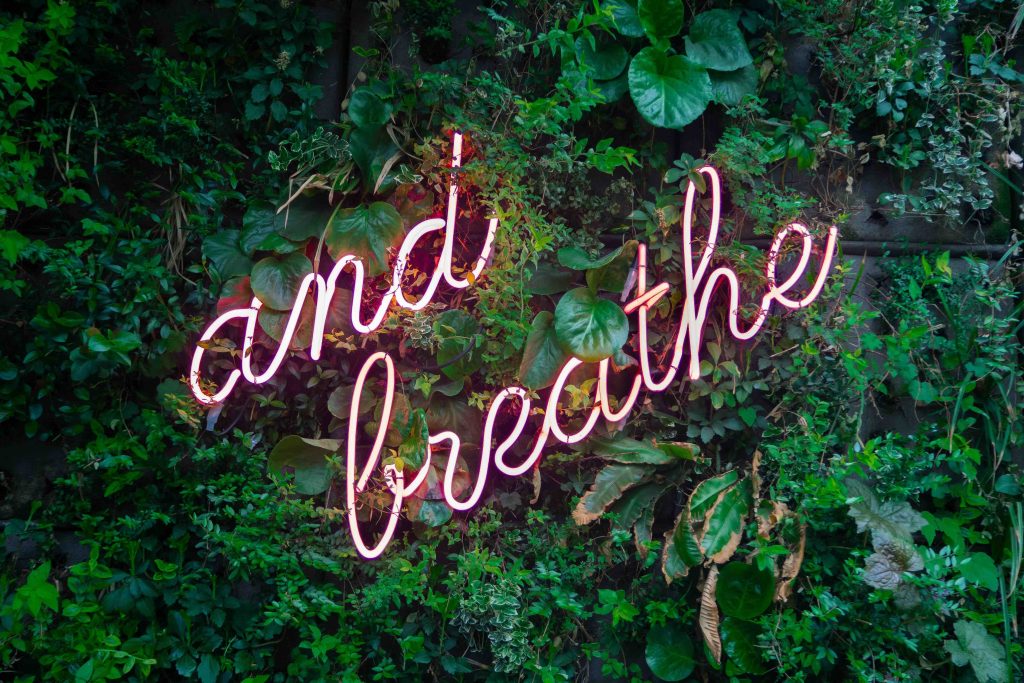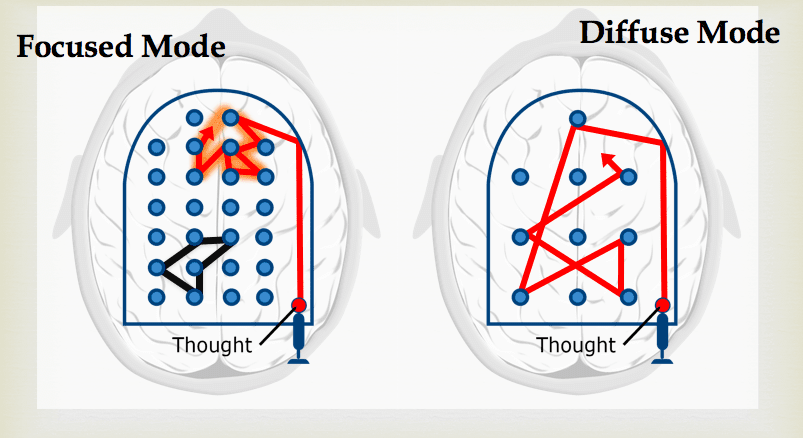We all know the importance of taking breaks during our workday, we do them naturally, but at random times.
However, if you are deliberate with your breaks, if you schedule them and make sure you do them properly, the productivity and creativity benefits are enormous.
I will go over the top 3 principles of effective breaks and then show you how they lead to long term productivity and breakthroughs against creative blocks and difficult tasks.
The 3 Principles of effective breaks
1. Stop stimulating your brain
Make sure to stimulate your brain as least as possible while on your breaks.
And be ruthless with here.
Obviously no social media, but also no looking at anything visual: phone, laptop, TV. Also don’t listen to audiobooks, podcasts or even music.
Don’t chat with people and get invested in their story and what’s happening in their lives, again filling your brain and not letting it rest.
Our goal is to empty our mind as much as possible during breaks and let it digest everything that happened in the background.
Best way to do this is to go for a walk in a park and focus on your walking, on the sounds of the birds and not think about anything in particular.
The point of this is to put your brain into diffuse mode and let it connect the dots. More on diffuse mode later in the article.

2. Schedule your breaks
Professional athletes take breaks during their games, they have timeouts and substitutes.
They take multiple breaks so they can perform at their highest level when they’re playing.
For us intellectual workers, our workday is our game and we need to take breaks every few hours so we can continue to perform throughout the day.
If we wait until we’re exhausted to take a break, then it’s too late, we will be tired until the end of the day.
My general rule of thumb is to take a longer break every 2 hours, it doesn’t have to be that long if you follow the first principle, 20 minutes is enough.
It might sound crazy to people used to working in an office, but these days most of us are remote and we can get away with it. In fact it will make us more productive overall.
I also like the Pomodoro technique where you separate your work into work cycles consisting of 25 minutes work and 5 minutes break. Then after 4 work cycles you take the longer break.
I use a modified Pomodoro technique where I work for longer focused periods in the morning, something around 45 minutes of work with 10 minutes rest. I do a few of those then I take a longer break. In the afternoon I move closer to the 25/5 work cycles.
3. Move your body and move away from your desk
Move away and step away. Don’t spend your break on the same chair, even if you plan to meditate or something.
My favorite thing to do on my short breaks are Sun Salutations. A simple yoga sequence that takes less than a minute to complete. I do that 3-4 times and I’m as good as new.
During your longer breaks of course you can take a walk, do some pushups or whatever.
How effective breaks can lead to creative breakthroughs
I mentioned putting the brain in diffuse mode in the beginning of the article.
Our brain works in two ways, focused and diffused mode. Focus mode is when we are actively engaged in a task. In focus mode our brain is activated only in a particular area and it is optimized for fast execution and quick decisions.

In diffuse mode our brain relaxes and is able to activate larger areas of itself and connect the dots between distant subjects. This is where our creative breakthroughs happen.
But beware, focus mode can be deceiving, if you’re watching videos or scrolling instagram you are still in focus mode, even though you’re doing stupid stuff.
Being in focus mode doesn’t mean you are being productive.
If during your breaks you are warped inside your phone, you are not coming out of focus mode, you are only changing your focus.
The goal of your breaks is to enter diffuse mode, relax your brain and let it connect the dots and do the heavy lifting for you.
Switching back and forth between these two natural states of our brain allows us to stay productive throughout the whole day and helps to prevent burnout in the long run.
Make sure to take your breaks seriously to optimize your long term productivity.
Until next time,
Stay productive.
Darko Kolev
Related posts
Categories
- About LifeHQ (2)
- Advice (4)
- Becoming better (7)
- Body & Mind (2)
- Case studies (2)
- Focus Hub (4)
- Guides (10)
- Journal (3)
- Lessons (5)
- Mindset (1)
- My Startup Journey (13)
- Personal Templates (1)
- product design (3)
- Productivity (10)
- Productivity Systems (2)
- Remote work (1)
- Roadmap (8)
- Routines (2)
- software (1)
- Success (1)
- Uncategorized (1)
